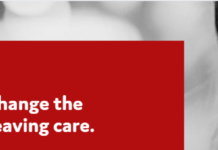Christmas with an Eating Disorder: Surviving the Feasting Season
As a nation we have seen a huge increase in hospitalisation of children and young people battling eating disorders and that has continued to rise throughout the pandemic with a surge of new cases and relapses. This year follows a 40% increase in kids referred to hospital for ED issues prior to the pandemic and a similar rise during the pandemic*. Each Christmas and New Year we see a spike in relapse and increase in these problems and this Christmas will be particularly challenging, with families and large groups once again reuniting and the pressures increasing for those who have a fraught relationship with food and their bodies.
Christmas Triggers
Christmas is always a time of stress for people with mental health issues, especially eating disorders due to the food fest and over-indulgence. It can be a frightening time of year, with one of the main triggers being a sufferer’s relationship with food. It’s almost impossible not to think about food, with advent calendars to feasting on Christmas Day as a constant reminder. The festive season is a time of cheer for most people and one of the ways we share this is through celebratory meals, but if you have an eating disorder you may feel excluded from the season.
Psychotherapist Noel McDermott comments: “Many people use their relationship with food to deal with how they are feeling, and this is a period when friends and family need to keep a watchful eye and offer support where needed. If you think you or a loved one might be having problems with eating habits or feel differently about food, you could have an eating disorder or be developing one”.
Tips on Coping with the Christmas Season if you have an eating disorder
· Build a support network – Go into the festive season with a support system, whether it’s a friend you can text or a family member you can talk to in real life at one of these social gatherings.
- Make time for yourself – Engage in self-care, take time out from family and friends, go for a walk, prioritise sleep, meditate when you have a quiet moment.
- Adjust expectations – this has been another challenging year, Christmas does not need to be perfect, limit time on social media and instead focus on the here and now, make the most of this season and enjoy yourself without any judgement.
Signs and symptoms of an eating disorder
If you’re worried about a loved one, signs and symptoms to look out for include disappearing to the toilet for lengthy periods during mealtimes, going to the gym excessively and compulsively and being overly controlling on food consumption. The individual will display patterned behaviours around control and purging, such as a ritualised relationship towards food, calorie counting at every opportunity. Mood problems such as depression and anxiety over social standing will be obvious as will body image problems.
How to get help this Christmas
To get to the point where you can enjoy a meal can take a lot of help from others, especially health professionals. If you think this is an eating disorder you need to get professional help as soon as you think this is a problem. First call your GP and ask for an extended appointment to talk about your concerns. Don’t go alone if self-referred, take someone you trust along to offer the support you need. Most importantly, turn up well informed, the NICE guidelines provide very comprehensive information for the general public. Treatment can be very successful but as with all mental health issues the earlier it is sought the better.
Noel McDermott is a Psychotherapist with over 25 years’ experience in health, social care, and education. He has created unique, mental health services in the independent sector. Noel’s company offer at-home mental health care and will source, identify and co-ordinate personalised care teams for the individual. They have recently launched a range of online therapy resources to help clients access help without leaving home – www.noelcdermott.net
Help keep news FREE for our readers
Supporting your local community newspaper/online news outlet is crucial now more than ever. If you believe in independent journalism, then consider making a valuable contribution by making a one-time or monthly donation. We operate in rural areas where providing unbiased news can be challenging. Read More About Supporting The West Wales Chronicle

























